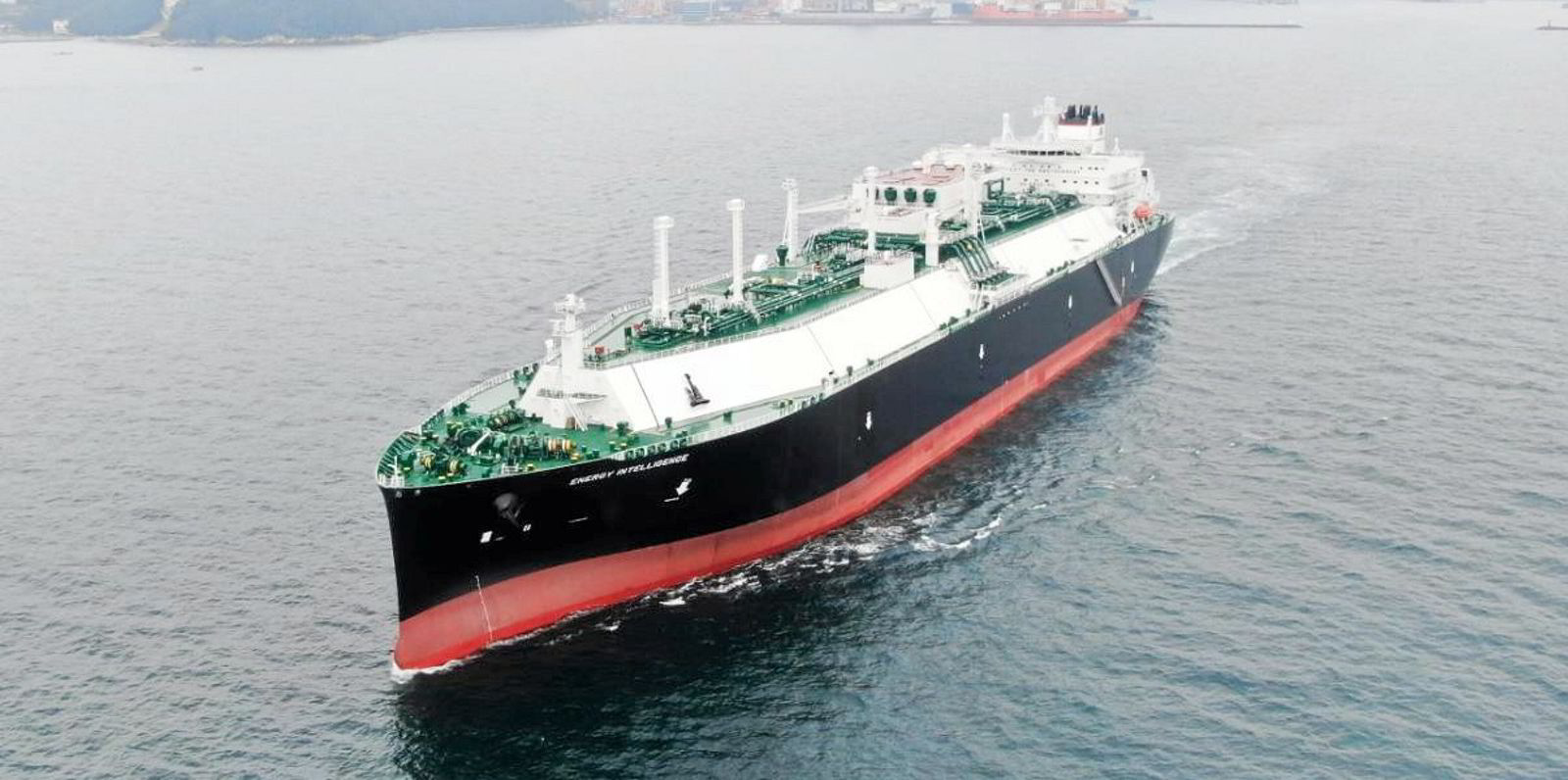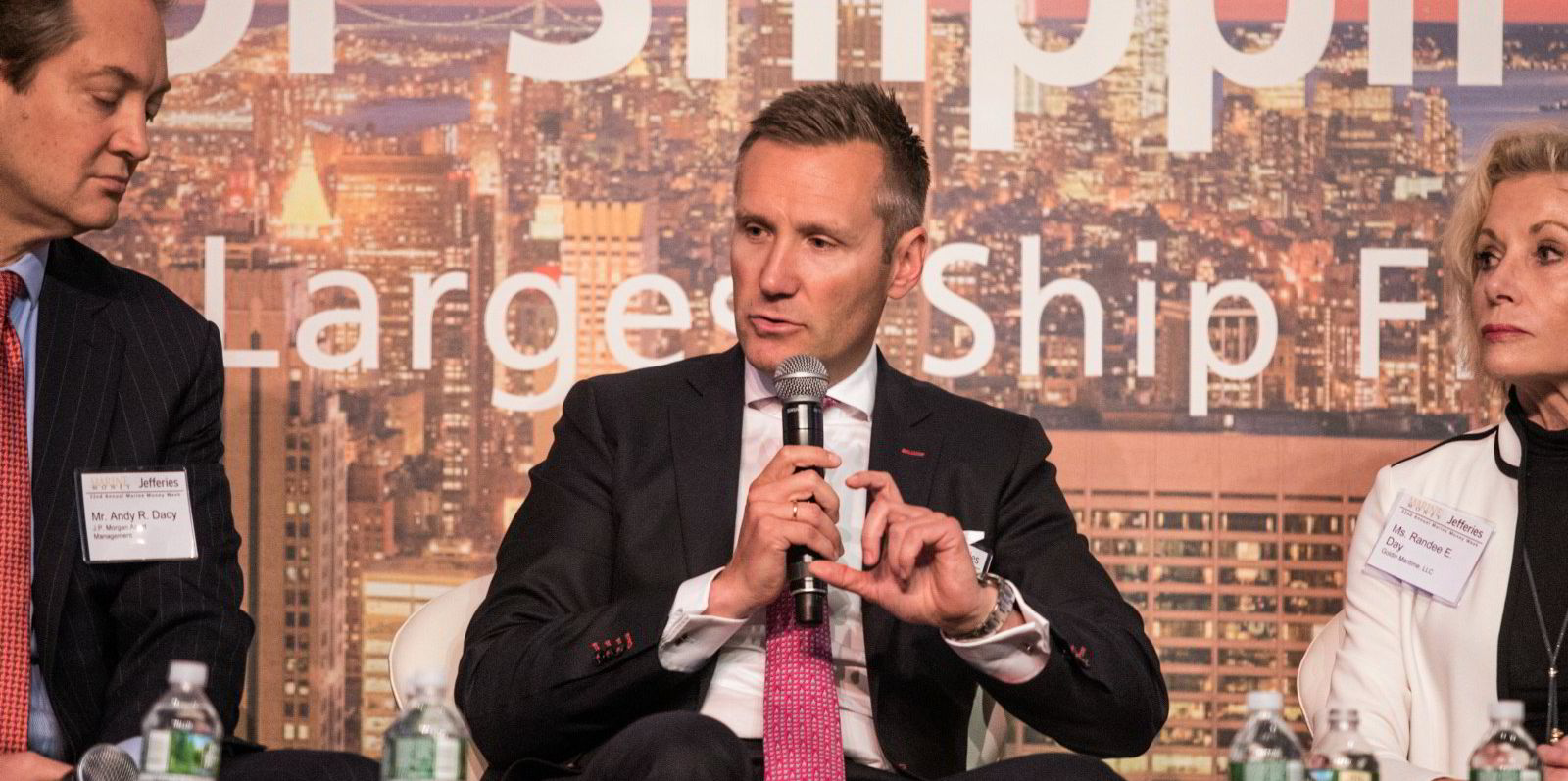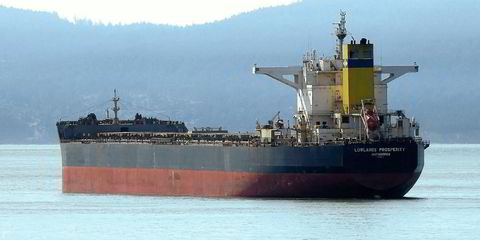Price shocks for fossil fuels this year have seen some green alternatives get close to their cost, but shipping will have to face much higher prices in future, the head of Mediterranean Shipping Co (MSC) regulatory policy said today.
“With alternative fuels, any of them, we have the expectation that they will be significantly more expensive than the costs we are used to paying,” said MSC Group’s executive vice president of maritime policy and government affairs, Bud Darr.
Speaking at Capital Link’s decarbonisation in shipping webinar forum, Darr said he expects fuel price increases in a range of two to eight times current norms, as the industry factors in the costs of new production and delivery infrastructures.
He said this is something that has been experienced previously by those using LNG as a fuel, but market volatility can have some “eye-opening” potential effects.
Recently, very high LNG prices meant the cost of producing bio-LNG became cost competitive against the fossil fuel, he said.
Ardmore Shipping chief operating officer Mark Cameron said: “We have had the luxury in the industry of effectively being the waste product user: We have had a bit of an artificial ride in the price of bunkers.
“From being a bottom-of-the-pile user, we are now being brought into the mainstream of the world by using clean fuels.”
Land-based competition for fuels will be a big consideration that shipping has not previously had to take into account.
To supply green ammonia as a fuel for shipping alone, Darr said it would require all the renewable energy capacity on the planet available today.
“You have to produce green hydrogen through electrolysers that don’t exist yet, and then you have to get enough of that hydrogen diverted to what we need rather than the other users, and then there is more power needed and a catalyst process to create the green ammonia to then be transported through a non-existent midstream to get where it is needed on the ship,” Darr said.
Pilot fuels also need to be factored into the potential emissions that can be achieved.
Modi Mano, founder of MSea Capital, said the company has amassed 40,000 engine hours of experience using grey methanol in dual-fuel chemical and product tankers.
“At this point in time, methanol as a fuel is just slightly more competitive than very low-sulphur fuel oil and even cheaper than low-sulphur gasoil,” Mano said due to the high price of oil.
But he said volatility meant that could not be guaranteed, and pricing and availability have been problems in the past.
In a second session, Marco Fiori, chief executive of Italian tanker operator Premuda, stressed the need for the creation of a totally new global fuel supply infrastructure, pointing out that, even today, scrubber-fitted ships could not source high-sulphur fuel oil in South America.
Loucas Barmparis, president of Safe Bulkers, added that the real problem for shipping was who pays for the development of green fuel supply systems, though Darr said costs would just have to be passed on to customers.






